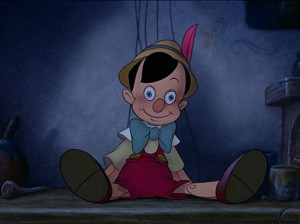Dear Store,
So, yeah, yesterday I visited you, and cringed at the massive display of cases of Jamison’s and Guinness, and a countdown clock to St. Patrick’s Day, and now, I have a teeny rant: Thanks, Store, for subtly reinforcing the worn out, hoary stereotype that there’s nothing more to Irish culture than being a flat-out, pishing, green-wearing drunk. Nothing exists in a vacuum, Store, and even your displays helps shape the lens of how people see the world. Your reinforcing a tired old cliché does not serve anyone, and helps to obliterate the record of the myriad brilliant, incisive and influential Irish and Irish-American people that I know personally. Just so you know.
Also, please note I didn’t mention you by name, as you’ve probably not yet gotten my note about it, but next year, if you do it again? It’s ON.
As I’ve no doubt mentioned repeatedly on this blog, representation was one of the BIG Questions that came at me repeatedly in grad school: “Why aren’t you representing,” or, “why aren’t you representing more?” I will admit that for a long time, I wrote stories under the shorthand For some people, when you present a culture as the “norm,” it’s too subtle for them. They want you to exaggerate certain qualities and create a caricature more than a three-dimensional whole. People sometimes don’t even know they’re doing that, and end up exoticizing an entire culture. Everyone Mexican can make tortillas, wears a serape, and likes to nap with her sombrero tipped over her face during siestas; everyone Japanese is a geisha or a kung fu master, etc…
“The Kingdom in Huntress is influenced by Chinese and Japanese culture, but it is not China or Japan. It is a fictional fantasy world…” ~ Malinda Lo, author of ASH and HUNTRESS, in “On avoiding the exotic in HUNTRESS,” from her blog, 2 Sept. 2011.
What I’ve been asking myself is how to represent a culture in a fantasy world without exoticizing it, and turned to author and anthropologist Malinda Lo’s blog for help in thinking it through. Is it enough to set a book in a fictional version of North/Northeast Africa and southern Italy during a fictional Ottoman Empire? I don’t think so, not inherently. Is it exoticizing to take note of the actual clothes, foods, and religious and social mores from the real Ottoman Empire in its heyday, and use that in the book? No, especially if I can subtly include them without making them A Thing. So… what would make this exotic? Malinda speaks of her own work:
“What makes something exotic? It can certainly be philosophy or beliefs, but more often, I think exoticism resides in things you can actually see or hear. Clothing, food, music, architecture: these are the external markers of difference.” ~ M. Lo
So, taking note of that, these are among the things I will avoid: no despotic ruler clichés, no warmongering, fanatical religious Muslims. Further, there will be no untrustworthy, swarthy mafioso types, and while I can’t promise no short, or hirsute, or curly haired, or dark skinned or chauvinistic characters, these things won’t occur because a character is Sicilian. There will be no obsequious, effendi-panting slyly servile types, no Ali Baba and Aladdin, Sindbad or any one of Forty Thieves. No Oriental-ism, with swoopy calligraphy and poufy turban saber-wearing sultans, swathed in mysticism and curly-toed shoes, reclining on Persian carpets whilst being danced for by those sloe-eyed temptresses from the harem. Also, people will wear a color other than black, and not eat only spaghetti.
Honestly, I should think most of these egregious stereotypes would be easy to avoid… the point of adding cultural richness is to place the character right in the midst of the riches, not keep them self-conscious about it, and always commenting on the nubile chick tossing off veils in the corner as she dances, and the smoke of the hookah or whatnot (and really. Must I have a hookah? I think not).
Yeah, you’d THINK this stuff would be obvious… but too many people mess up with exoticism for me to believe that, so, we’ll see.
Writing thoughtfully,
-t
 Today I woke up thinking about my friend JG.
Today I woke up thinking about my friend JG.